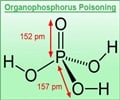Useful recommendations for research to inform effective suicide prevention is provided in a new supplement to the September issue of AJPM, addressing the state of the science on suicide prevention.

"The articles in this special supplement represent the collective thinking of suicide prevention experts from across the United States and several other countries about where research efforts might best be invested to address the vexing public health problem of suicide," say the supplement's guest editors Morton Silverman, MD, Jane E. Pirkis, PhD, Jane L. Pearson, PhD, and Joel T. Sherrill, PhD. "We are confident the articles will have a major influence on the suicide prevention research community."
The content of the supplement directly addresses research that will inform the following goals:
- Know what leads to, or protects against, suicidal behavior, and learn how to change those factors to prevent suicide
- Determine the degree of suicide risk among individuals in diverse populations and in diverse settings through feasible and effective screening and assessment approaches
- Find ways to assess who is at risk for attempting suicide in the immediate future
- Ensure that people who are thinking about suicide but have not yet attempted receive interventions to prevent suicidal behavior
- Find new biological treatments and better ways to use existing treatments to prevent suicidal behavior
- Ensure that people who have attempted suicide can get effective interventions to prevent further attempts
- Ensure that healthcare providers and others in the community are well trained to find and treat those at risk
- Ensure that people at risk for suicidal behavior can access affordable care that works no matter where they are
- Ensure that people getting care for suicidal thoughts and behaviors are followed throughout their treatment so they do not fall through the cracks
- Increase help-seeking and referrals for at-risk individuals by decreasing stigma
- Prevent the emergence of suicidal behavior by developing and delivering the most effective prevention programs to build resilience and reduce risk in broad-based populations
- Reduce access to lethal means that people use to attempt suicide
Effective suicide prevention is a team effort, including both public and private partners. Contributors to the supplement stress that progress in the area of suicide prevention research will require interdisciplinary, collaborative science and that translational science and interdisciplinary research collaboration ("team science") will be critical for advancing science and ultimately identifying effective prevention strategies.
The supplement's guest editors conclude, "The papers in this supplement, like the Research Agenda itself, are intended as inspirational resources that highlight the challenges and rewards of engaging in suicide prevention research, and suggest future research directions that have the potential to advance the overall goal of reducing attempts and deaths."
Advertisement










